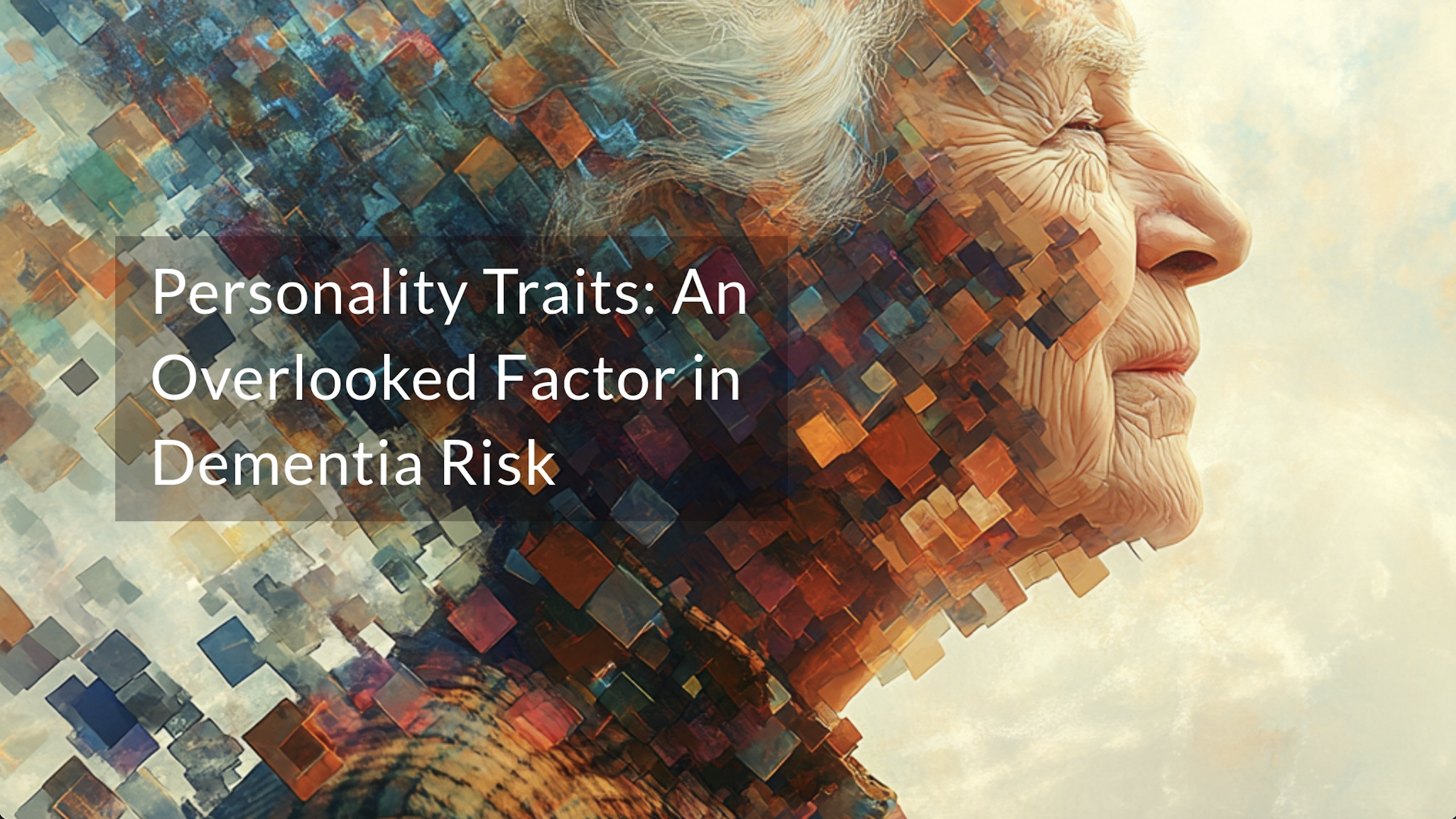Personality Traits: The Hidden Key to Better Understanding Mental Health
Introduction
Personality impacts almost all aspects of our lives, from the way we interact with others to how we approach challenges and make decisions. It shapes how we communicate, build relationships, and respond to social situations, influencing our overall social engagement and behavior [1]. Personality also affects how we approach challenges, shaping our coping strategies, attitudes toward difficulties, and overall ability to manage stress [2]. Personality traits influence decision-making by affecting how individuals assess situations, weigh risks, and make choices [3].
What Are Personality Traits?
Personality traits refer to patterns of thoughts, emotions, and behaviors that define an individual’s characteristic way of interacting with the world. These relatively stable dispositions distinguish individuals from one another and are regarded as fundamental psychological constructs due to their profound influence on life outcomes. Empirical research demonstrates their significant associations with diverse domains, including psychopathology susceptibility [4], cardiovascular health trajectories [5], criminal behavior [6], work experiences [7], academic achievement [8], romantic relationships [9], and parent-child interactions [10]. Later in this blog, we will dive deeper into how personality traits influence mental health, including their links to psychiatric disorders, like depression or anxiety or to neurodegenerative diseases, like dementia.
The Big Five and the MBTI: Two Well-Established Models of Personality
Personality research has led to the development of several influential theoretical frameworks, with the Big Five personality traits (also known as the Five-Factor Model) and the Myers-Briggs Type Indicator (MBTI) emerging as two of the most prominent and well-established models. The Big Five—comprising Openness to Experience, Conscientiousness, Extraversion, Agreeableness, and Neuroticism (OCEAN)—dominates contemporary psychological research due to its robust empirical validation and predictive power across diverse life domains [11][12]. In contrast, the MBTI—which operationalizes Carl Jung’s pioneering theory of psychological types [13]—categorizes individuals into 16 distinct personality types based on four dichotomous preference scales: Introversion/Extraversion, Sensing/Intuition, Thinking/Feeling, and Judging/Perceiving [14]. While the Big Five is favored for its scientific rigor, the MBTI remains notable for its practical applications, demonstrating how distinct conceptualizations of personality can serve complementary purposes in both research and practice.
From Heart Disease to Dementia: The Role of Personality in Health
Personality traits have emerged as key determinants of health outcomes, affecting both physical and mental well-being. In the realm of physical health, numerous studies have demonstrated significant links between personality traits and chronic diseases, particularly cardiovascular conditions [15]. A large-scale 2022 study analyzing data from 484,205 UK Biobank participants revealed how personality traits influence myocardial infarction risk. Some traits increase susceptibility to heart disease, while others offer protection, as individuals with certain traits engage in healthier behaviors and maintain stronger social connections [16].

.
In the mental health domain, personality traits extend beyond mere social or behavioral tendencies to influence psychiatric disorders and neurodegenerative diseases. A comprehensive meta-analysis [16] found that higher neuroticism predicts increased dementia risk while higher conscientiousness shows protective effects. This highlights potential non-genetic intervention pathways. The relationship between personality and psychopathology is further supported by a meta-analysis [9], which confirmed consistent associations between the Big Five traits and various clinical disorders, with neuroticism emerging as the strongest predictor. Complementary research [4] found that neuroticism consistently correlates with poorer mental health across multiple dimensions, while traits such as extraversion, agreeableness, and conscientiousness exhibit protective effects against certain mental health challenges.
This body of evidence underscores the critical role of personality factors in shaping both physical and mental health, emphasizing their importance in health interventions and risk assessments.
Transforming Mental Health Diagnostics with Personality-Aware AI
At Exaia, we’re redefining mental health detection with personality-aware AI. Our multi-task fusion framework uniquely integrates personality traits with behavioral and clinical indicators to develop precise ML models for mental disorders. Explore our published research on ADHD, anxiety, bipolar disorder, depression, and psychological stress through verbal behavior here.
References
[1] Gundogdu, D., Finnerty, A. N., Staiano, J., Teso, S., Passerini, A., Pianesi, F., & Lepri, B. (2017). Investigating the association between social interactions and personality states dynamics. Royal Society Open Science, 4(9), 170194. https://doi.org/10.1098/rsos.170194 Back to text
[2] Afshar, H., Noroozi, M., & Noroozi, A. (2015). The Relationship Between Personality Types and Coping Style. Journal of Research in Medical Sciences: The Official Journal of Isfahan University of Medical Sciences, 20(5), 488–493. https://www.ncbi.nlm.nih.gov/pmc/articles/PMC4468450/ Back to text
[3] Ambawatta, M., & Singh, P. (2024). The interplay of decision-making styles and personality traits among individuals. International Journal of Interdisciplinary Approaches in Psychology, 2(5), 406. https://psychopediajournals.com/index.php/ijiap/article/view/406 Back to text
[4] Kang, W., Steffens, F., Pineda, S., Widuch, K., & Malvaso, A. (2023). Personality traits and dimensions of mental health. Scientific Reports, 13, 7091. https://doi.org/10.1038/s41598-023-33996-1 Back to text
[5] Sahoo, S., Padhy, S. K., Padhee, B., Singla, N., & Sarkar, S. (2018). Role of personality in cardiovascular diseases: An issue that needs to be focused too! Indian Heart Journal, 70(Suppl 3), S471–S477. https://doi.org/10.1016/j.ihj.2018.11.003 Back to text
[6] Zettler, I., & Hilbig, B. E. (2024). Dark and bright personality dimensions as predictors of criminal behavior. Scientific Reports, 14, Article number: 69288. Back to text
[7] Barrick, M. R. & Mount, M. K. The big five personality dimensions and job performance: A meta-analysis. Person. Psychol. 44, 1–26 (1991). https://doi.org/10.1111/j.1744-6570.1991.tb00688.x Back to text
[8] Mammadov, S. (2022). Big Five personality traits and academic performance: A meta-analysis. Journal of Personality, 90(2), 222–255. https://doi.org/10.1111/jopy.12663 Back to text
[9] Malouff, J. M., Thorsteinsson, E. B., Schutte, N. S., Bhullar, N., & Rooke, S. E. (2010). The five-factor model of personality and relationship satisfaction of intimate partners: A meta-analysis. Personality and Individual Differences, 49(6), 607–616. https://doi.org/10.1016/j.paid.2010.05.033 Back to text
[10] Prinzie, P., Stams, G. J., Deković, M., Reijntjes, A. H., & Belsky, J. (2009). The relations between parents’ Big Five personality factors and parenting: A meta-analytic review. Journal of Personality and Social Psychology, 97(2), 351–362. https://doi.org/10.1037/a0015823 Back to text
[11] McCrae R, John O. 1992 An introduction to the five-factor model and its applications. J. Pers. 60, 175–215. https://doi:10.1111/j.1467-6494.1992.tb00970.x Back to text
[12] McCrae R, Costa P. 1999 A five-factor theory of personality. In Handbook of personality (eds L Pervin, O John), pp. 139–153. New York, NY: Guilford. Back to text
[13] Jung, C. G. (1971). Psychological types. In H. Read et al. (Eds.), The collected works of C.G. Jung (Vol. 6, 2nd ed.). Princeton University Press. (Original work published 1921) Back to text
[14] Myers, I. B., McCaulley, M. H., Quenk, N. L., & Hammer, A. L. (1998). MBTI Manual: A guide to the development and use of the Myers-Briggs Type Indicator (3rd ed.). Consulting Psychologists Press. Back to text
[15] Dahlén, A. D., Miguet, M., Schiöth, H. B., et al. (2022). The influence of personality on the risk of myocardial infarction in the UK Biobank cohort. Scientific Reports, 12, 6706. https://doi.org/10.1038/s41598-022-10573-6 Back to text
[16] Beck, E. D., Yoneda, T., James, B. D., Bennett, D. A., Hassenstab, J., Katz, M. J., Lipton, R. B., Morris, J., Mroczek, D. K., & Graham, E. K. (2023). Personality predictors of dementia diagnosis and neuropathological burden: An individual participant data meta-analysis. Alzheimer’s & Dementia, 19(1), e13523. https://doi.org/10.1002/alz.13523 Back to text


